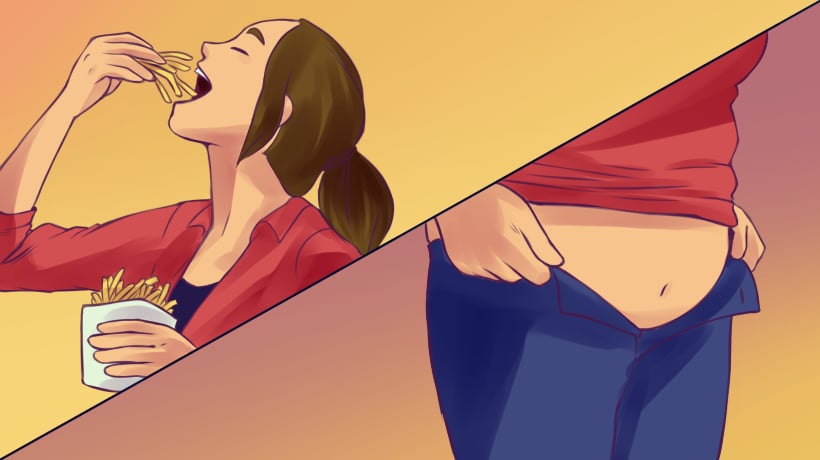Bloating is the condition of your stomach feeling swollen after eating. It is usually caused by excess gas production or other disturbances in the digestive system. Bloating can cause increased pressure and discomfort, and can sometimes make the belly temporarily look bigger.
Although bloating is sometimes caused by medical conditions, it is most often the result of your diet or the consumption of foods that your body cannot tolerate. The good news here is that if you frequently struggle with belly bloat, there might be an easy fix.
To avoid uncomfortable bloating and to keep your tummy looking flat all day, consider cutting out the following foods from your morning routine.
Cruciferous vegetables
Though they are delicious in an omelette – kale, broccoli, cauliflower, Brussels sprouts and cabbage are all cruciferous vegetables, which contain raffinose—a hard-to-digest sugar that produces gas and makes you bloat. No need to cut these healthy greens out of your diet entirely, but be mindful of your portion sizes (and think about if you can handle a little belly bloat in the afternoon).
Legumes
I’m looking at you, huevos rancheros and breakfast burritos. Beans are one of the biggest offenders when it comes to gas because they contain sugars and fibers that our bodies cannot absorb. On top of that, you probably don’t associate beans with your morning protein bar, but many include protein isolate derived from soybeans. Moral of the story: beware of the bean!
Dairy products
Dairy can take a huge toll on the stomach. Though milk products do not cause bloating for everyone, lactose sensitivities are very common throughout the population. If you find yourself bloating from milk, cheese or yogurt, consider cutting dairy products out of your mornings.
Apples and pears
Foods high in fiber are great to lose weight, but can really hurt sensitive stomachs. Apples and pears contain fructose and sorbitol—sugars found in fruits that many people cannot tolerate. Although these fruits are easy to grab-and-go in the morning, you might need to limit your intake if you suffer from belly bloat.
Salt
Consuming high-sodium breakfast foods can lead to water retention and temporary weight gain. The Center for Disease Control and Prevention reports that about 90 percent of Americans consume more sodium than the recommended amount (2,300 mg per day). But if you need your salt fix in the morning, studies say that you should drink lots of water. Staying hydrated can counteract the effects of salt-induced bloating.
Sources:
http://www.health.com/health/gallery/0,,20802995,00.html
https://www.healthline.com/nutrition/13-foods-that-cause-bloating



